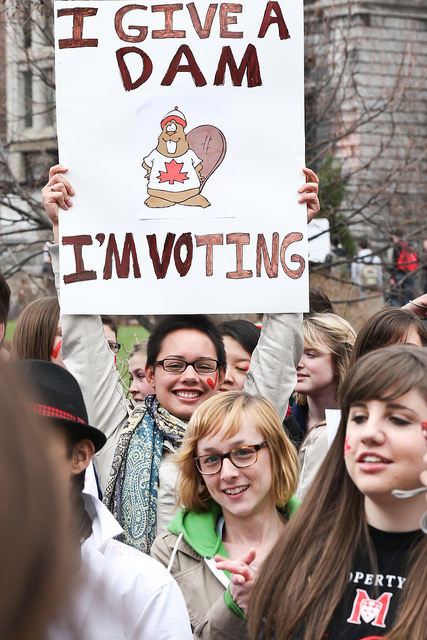Everyone’s vote is welcome here. You can change the political conversation. Chip in to rabble’s donation drive today!
The Canada Elections Act provides two remedies for voter fraud. The first allows for the prosecution of the culprits. The other, and more important, remedy allows for taking the spoils of such illegal activity — seats in Parliament — from those who benefitted from the fraud.
Under s. 524 of the Act, that second remedy may only be sought by an elector eligible to vote in the particular riding in which the fraud is alleged to have happened. But to seek the annulment of an election for fraud, an elector must have reasonable grounds for making such a claim. Their own anecdotal experience as a victim, or potential victim, of voter fraud would usually not be enough.
In previous blogs I explained why Bill C-23, the Fair Elections Act, will make it far more difficult for electors to learn of a voter suppression campaign — or to do much about it, even if it is discovered
Here are my suggestions for reforms to the Act that would actually make voter fraud far less likely. Not surprisingly, these proposals are the virtual antithesis of the Harper Government’s “reforms” in Bill C-23.
Make political parties accountable for the misuse of their databases.
1. Amend s. 524 of the Act to allow an elector to initiate proceedings to annul the result of an election either by way of an application or an action (i.e. a civil lawsuit). Also amend s. 526 of the Act to allow an elector to name a political party as respondent or defendant in such a proceeding.
Currently, s. 524 requires an elector to proceed by application. But only an action provides for a right to discovery (i.e. a fact-finding process in which parties may seek production of relevant documents and conduct examinations) of those who may have committed or facilitated voter fraud by allowing a “Pierre Poutine” to access a database and download a list of non-party supporters. In the election fraud cases heard last year by the Federal Court, there was no way for the applicants to access the (CIMS) database records of the CPC or to compel the discovery of persons who may have had information about who had accessed the CIMS database for voter suppression purposes.
2. Require political parties to maintain records to show when and by whom database information about non-party supporters was used, for a period of 5 years (through and into the next election cycle).
Require the Timely Reporting of Complaints of Voter Fraud
3. Amend the Act to empower the Chief Electoral Officer to receive complaints of voter fraud, and to require that any such allegations received by the CRTC or the Commissioner of Elections be communicated forthwith to the Chief Electoral Officer.
4. Require the Chief Electoral Officer to make public the nature and number of such complaints in a timely manner and, in any event, on the 30th, 60th and 90th days following an election.
5. Amend s. 527(1) of the Act to require that an application or action under s. 524, be brought within 1 year of the election (instead of the current 30 days).
Ensure the Court Metes Out Appropriate Sanctions
6. Amend s. 531 of the Act to require a judge to annul the result of the election where fraud affected the result, unless it would be unjust in the circumstances to do so.
7. Amend the Act to provide that public interest litigants who challenge the outcome of an election on reasonable grounds of fraud are accorded their legal costs, either against the party that benefited, or against the Crown.
The right to vote is guaranteed by the Charter. It is the first building block of democratic society.
Boy, that article was good. Want more? Chip in and help keep us running!
Image: Flickr/adamscotti



